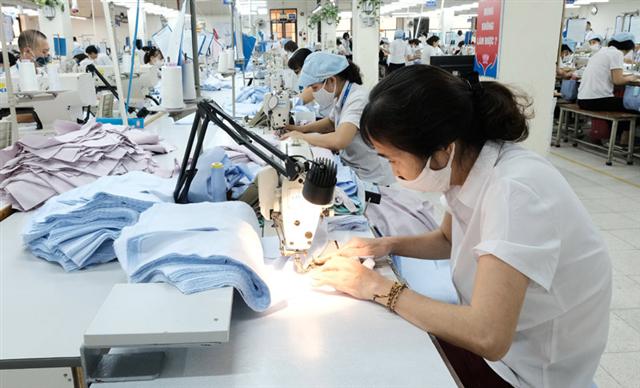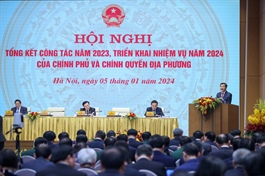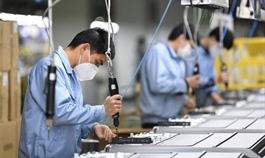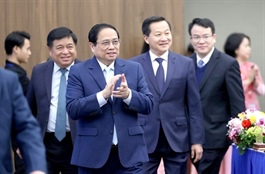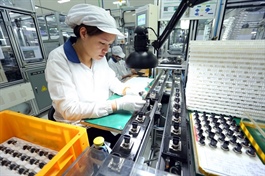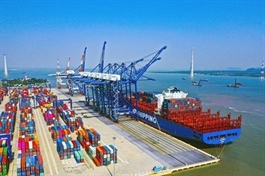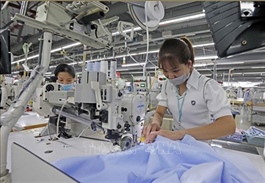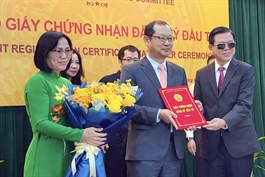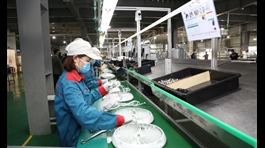Vietnam's FDI story continues to blossom
Vietnam's FDI story continues to blossom
Vietnam's appeal to foreign investors continued to improve last year, as did the quality of the foreign direct investment (FDI) the country attracted, according to a VinaCapital report that was released on January 9.

The report pointed out that there are some key factors contributing to Vietnam's appeal to overseas investors.
Firstly, wages are lower than those in China, but the quality of the workforce is comparable, according to surveys by the Japan External Trade Organization.
Vietnam's geographic proximity to Asia's high-tech industry supply chains is another major benefit, as is the nation's position among the friendshoring cohort of countries that are at low risk of having tariffs imposed on their exports to the US.
Last year, Vietnam's FDI story kept improving. The United States and Vietnam raised their diplomatic relationship to a Comprehensive Strategic Partnership, further cementing Vietnam's position in the US' friendshoring orbit.
Furthermore, Xi Jinping came to the country three months after Joe Biden, making Vietnam the only nation in Asia Xi visited last year, and the only one to host both Biden and Xi.
Michael Kokalari, chief economist of VinaCapital said, "This illustrates Vietnam's unique position in the world's evolving geopolitical landscape, which benefits investors because multinational companies that set up a factory in Vietnam need not worry about being able to sell their products in the US market nor their ability to access production inputs from China since Vietnam is being actively courted by both countries."
The International Monetary Fund, Atlantic Council, and others have highlighted that geopolitics is becoming an increasingly important factor in how companies decide which countries to invest in.
Apple's announcement that it will move some of its research and development activities to Vietnam for the first time follows its 2022 decision to start making the Apple Watch in Vietnam, which is a particularly complicated product to manufacture. The transition from assembling products to designing them is a further step up in the complexity of the activities the company conducts in Vietnam.
The single most powerful growth driver for a country like Vietnam is an increase in the complexity of the products and services it can produce, according to research from Harvard.
VinaCapital's economists believe Apple's latest move is a step – albeit a modest one – towards the development of a semiconductor industry in Vietnam, which is currently the subject of considerable discussion among executives from leading US and Taiwanese firms such as Nvidia.
The main caveat to all the positive points above is that Vietnam needs to accelerate infrastructure development to maximise high-quality FDI inflows. Its transportation and logistics infrastructure urgently needs to be upgraded, and foreign-led companies have concerns about the nation's ability to reliably supply electricity to industrial users – following last summer's power outages in the North.
Global minimum tax is not seen as a risk to Vietnam's FDI inflows. The primary reason is that tax incentives are not the main motivation for multinational companies to invest in one developing country versus another, according to research by the World Bank. These corporations consider a wide range of factors such as wages, the quality of the workforce, the quality of infrastructure, and the ease of doing business when deciding where to invest.






